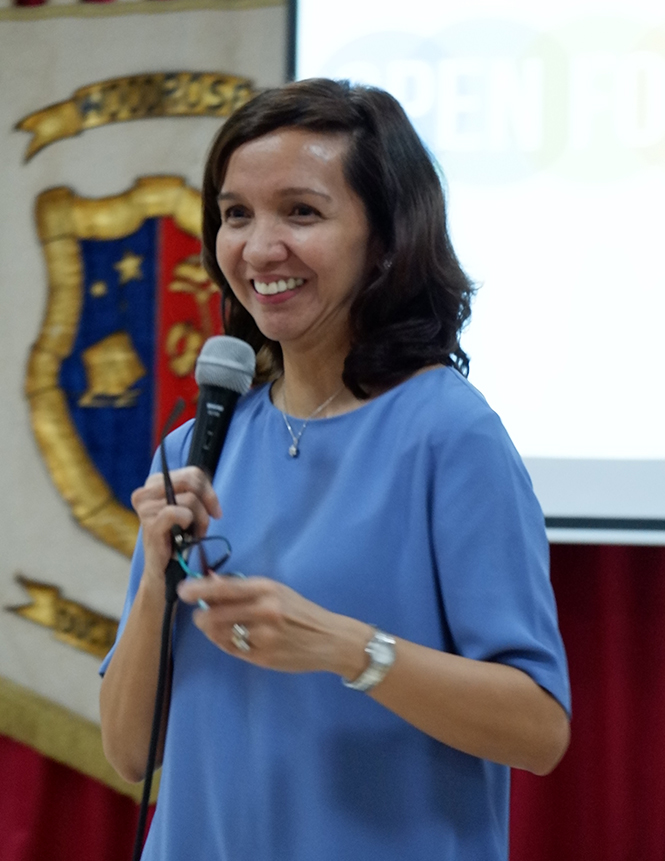(MENTAL) HEALTH IS WEALTH:
MENTAL WELLNESS AS A TOTAL SCHOOL INVESTMENT

The task of developing and nurturing children toward their full potential is not an easy feat. Children are complex beings, with different abilities, interests, and needs that may manifest and require attention at different times, sometimes appearing too early (or perhaps too late) in the normal cycle of growth and development. Knowing and understanding a child’s unique journey and where she is in that process are crucial for the school and the home, as the child’s chief caretakers. Learning how a child develops must be partnered with a thorough understanding of environments, conditions, and situations, both at home and in school, that allow them best to grow. Literature and research abound on this topic, but the answer is quite simple.
Children learn and grow when they are happy. They learn and grow when they are sufficiently and reasonably pushed and challenged. They learn and grow when they feel safe and emotionally supported. Recognition, acceptance, and full commitment to this mission – as parent or educator – are crucial, and beg that this question be asked:
How do we, in our role as parent, teacher, or mentor, help create the kind of environment – the kind of soil – that allows each child to bloom in her own unique way, to grow up tough yet tender, confident yet compassionate, resilient yet receptive and responsive to correction and guidance?
There are grave consequences if the significant adults in a child’s life fail in this task. When these fundamental needs are threatened, taken away, or given inconsistently, the chances for optimal learning and growth will be hindered. The opportunity of a parent or teacher to make a lasting positive impact on a child is lost. A child learns to approach situations with a basic, almost ingrained fear, uneasiness, and doubt in her capacity to handle herself and her reactions to situations. She learns to view environments and people as unsafe and begins to develop mechanisms and ways of thinking and being that shield her from pain, hurt, or disappointment. These serve as fertile ground for what is now a growing national concern and issue – the issue of mental health and mental illness.
The past few months have seen a strengthening in the response of the school to growing concerns regarding mental health awareness. In light of developments in national mental health reform in connection to the Mental Health Act of 2017, there have been initiatives spearheaded by the different Grade Levels and the Guidance Center for students, parents, teachers, mentors, and school staff to be conscious of possible signs of stress, anxiety, and even more serious issues like depression among students.
On March 21, 2018, Woodrose held a school-wide mental health awareness seminar for all employees. A practicing licensed clinical psychologist, Mrs. Ma. Blesila D. de Asis, spoke about anxiety and depression, their manifestations and development in school-age children and adolescents, and some possible interventions and preventive measures. The Guidance Center also presented to the employees updated school data on mental health awareness, together with a broad view of the Mental Health Act of 2017 and the Data Privacy Act of 2012.

These recent initiatives have ignited a spark in the minds and hearts of the Woodrose community, a spark that illuminates the need to examine the communal and individual mindsets and attitudes when it comes to mental illness and mental wellness. The message that Woodrose has sent, and will continue to send, is strong and clear. First, that the members of the school community are open and willing to learn, understand, and face challenges head on in relation to mental health and well-being of students and staff. Second, and more importantly, that there is a willingness to examine – even question and correct – practices, processes, and attitudes, whether in the classroom, coursework, organizations, clubs, varsities, and other school activities, that may compromise – or even harm – a student’s ability to learn fruitfully and joyfully, and grow into the best versions of themselves.
The students are the school’s most precious asset, and nothing must be spared to ensure that they learn and develop in environments that challenge, but at the same time nurture and support them. Now more than ever, at a time when children and even their families are most vulnerable, should the school hold fast to the core aspects that make it uniquely Woodrose – one with a rich and active life of faith, home-school collaboration, strong partnership among student, mentor, and parents, and a school mindset that champions not only academic excellence and character formation, but also the total well-being and happiness of each child.
Article by: Ms. Michelle Calsado, Head of the Woodrose Guidance Center
